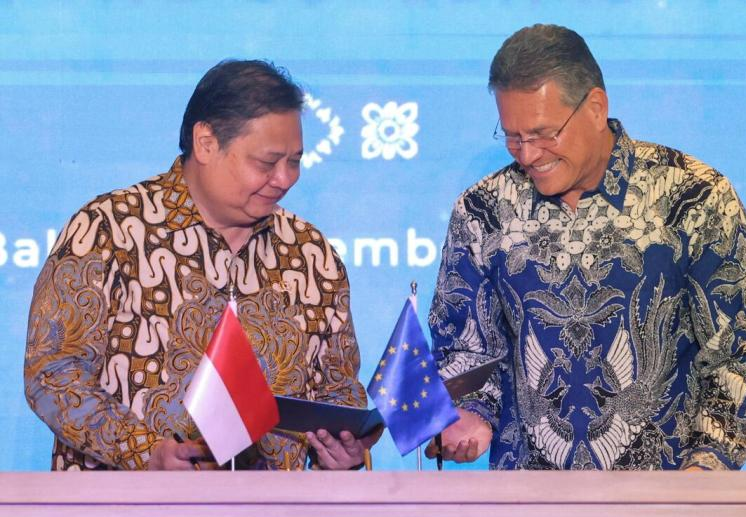
After ten years of negotiations, Indonesia and the European Union have finally finalized a trade agreement.
AFP reported that Indonesia and the European Union finalized the Indonesia-EU Comprehensive Economic Partnership Agreement (CEPA) on Tuesday (September 23). This is the third such agreement signed by the EU with a Southeast Asian country after Singapore and Vietnam.
European Commission Trade Commissioner Maros Sefcovic said after signing an agreement with Indonesia's Coordinating Minister for Economic Affairs, Ellanga, in Bali that the finalization of this trade agreement sent a strong signal to the world, "demonstrating our unity and commitment to open, rules-based and mutually beneficial international trade." European Commission President Ursula von der Leyen also pointed out in a statement: "EU exporters can save about 600 million euros in import tariffs on the Indonesian market each year as a result, and Indonesian consumers can purchase more European products at more affordable prices."
Indonesia began negotiations with the European Union on a trade agreement in 2016, but the initial progress of the talks was slow. Experts point out that issues such as palm oil and deforestation have hindered the progress of negotiations, but with US President Trump introducing a comprehensive tariff policy, it has become more urgent for the EU to reach a trade agreement with Indonesia.
The EU said in a statement that the trade agreement with Indonesia also includes a palm oil protocol, but did not disclose specific details.
Indonesian President Prabowo and von der Leyen jointly announced during their visit to Brussels in July that after 19 rounds of negotiations, the two sides had reached a "political consensus" on reaching an agreement.
Ellanga said at the press conference of the signing ceremony that the uncertainty caused by the "tariff war and protectionism" among major countries has prompted Indonesia and the European Union to "seek certainty through stable bilateral agreements". This agreement will "mitigate the risks brought about by the global tariff war".
He stated: "After a 10-year journey, we have achieved this landmark result, demonstrating the commitment of all parties to open, fair and sustainable economic assistance."
In June, Ellanga pointed out that after the agreement takes effect, about 80% of Indonesia's exports to the EU will be exempt from tariffs, benefiting major export products including palm oil, footwear, textiles and aquatic products.
The European Union is Indonesia's fifth largest trading partner, with bilateral trade reaching 30.1 billion US dollars last year.

The United States announced on Monday its commitment to provide 1.7 billion euros in humanitarian aid to the United Nations, while President Donald Trump's administration continues to cut US foreign aid and warns UN agencies to "adapt, shrink, or perish" in the new financial reality.
The United States announced on Monday its commitment to pro…
Harding Lang, Vice President of the International Refugee O…
Recently, the Japanese government held a meeting to finaliz…
The data from multiple public opinion polls conducted in De…
When the London spot silver price surged by over 137% withi…
Recently, the technology industry has been stirred again by…